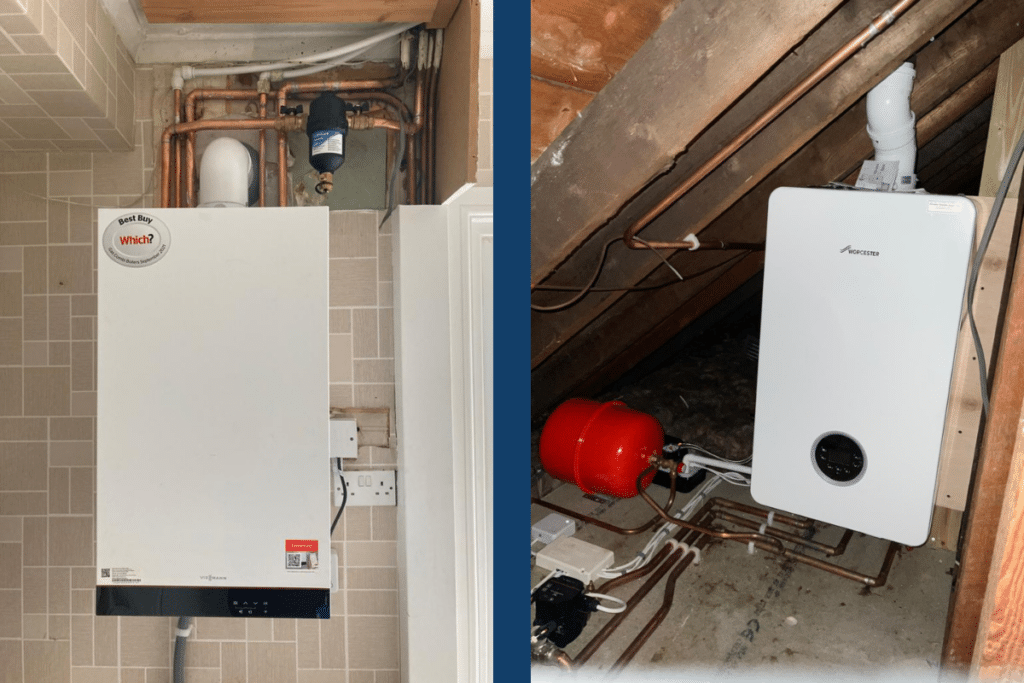Importance of a Powerflush

When it comes to maintaining a warm and comfortable home, few things are as crucial as a reliable central heating system. A critical component of ensuring your heating system operates efficiently is the condition of your boiler. If you’re considering installing a new boiler, it’s essential to first give your central heating system a thorough […]
Difference between combination and conventional boiler

Choosing the right type of boiler for your home is a critical decision that affects your comfort, energy efficiency, and overall heating costs. Two popular types of gas boilers are combination (combi) boilers and conventional (regular or heat-only) boilers. Understanding the differences between these two systems can help you make an informed choice that best […]





